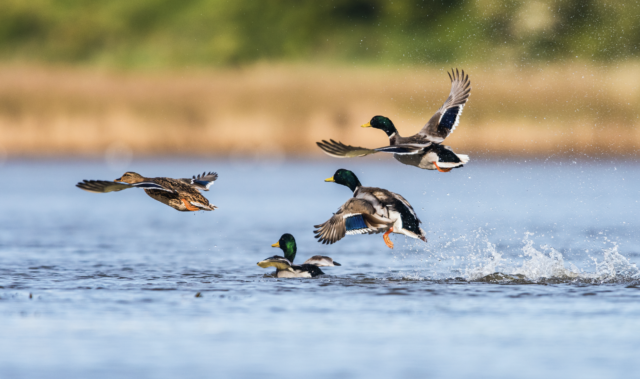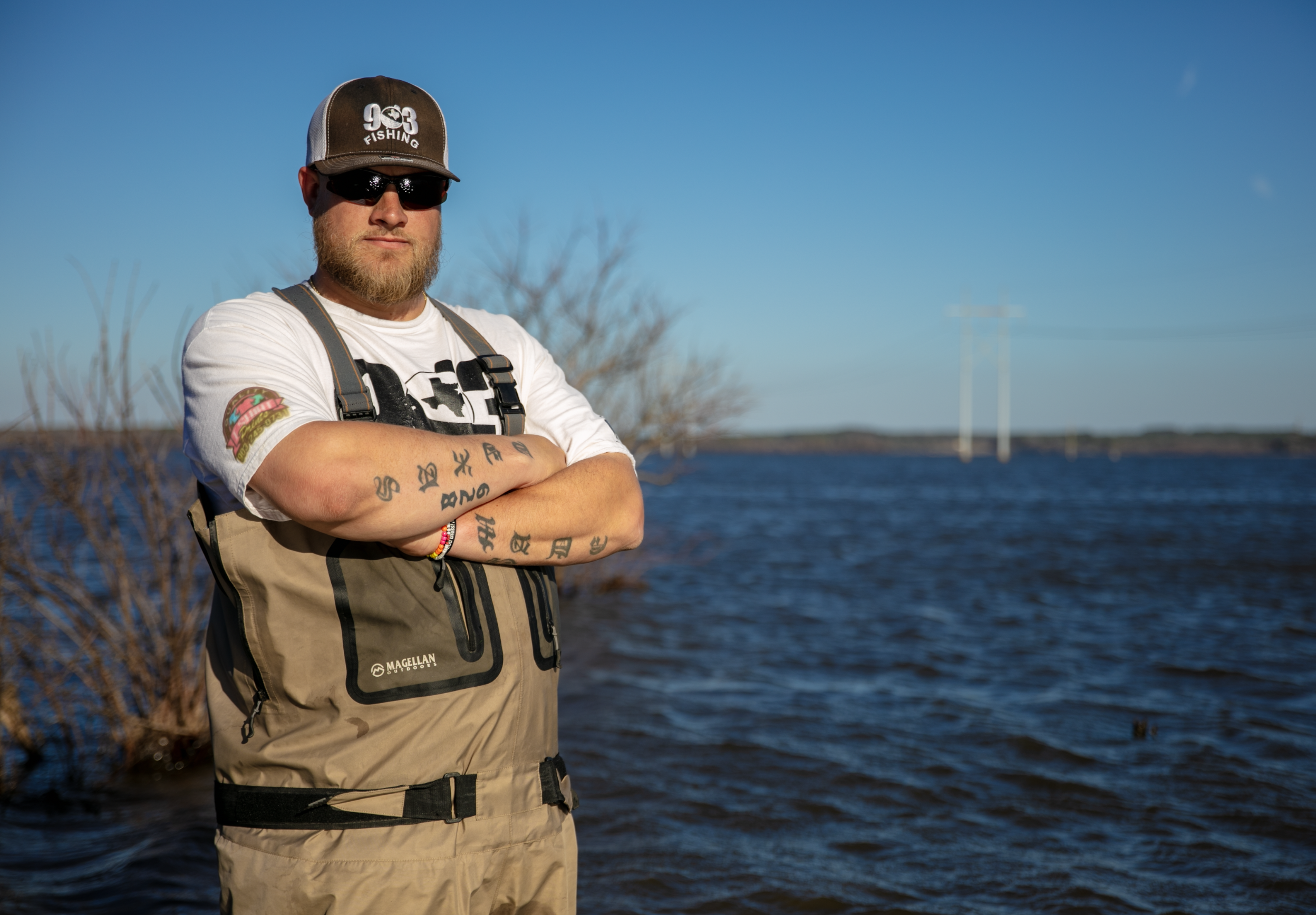by Royce Jordan
The beginning of a new year brings us a realization that one of our most cherished rights and celebrated heritage is about to wrap up for another season. The time and effort spent in the deer blinds, duck blinds, and small game pursuits has just about one month left or less. Hopefully, hunters and other real conservationists have enjoyed some degree of success in their endeavors. Success although is a truly relevant term.
Last deer season, I spent my time hunting only in East Texas. I didn’t see a doe during the either-sex days, and all of the bucks I observed were under the antler restriction requirements set for these counties. However, I spent my time and I saw deer. With our massive human population explosion and the wildlife habitat destruction our state has endured the past several years, I’ll take my success and hope for more next season. Managed Lands leases excluded, many antler-restricted counties deer seasons wrap up in early January. This leaves us with quail, some migratory birds like woodcock and doves (depending on the zone), small game, and for the rest of January … THE DUCKS.
One of the most exciting and fascinating creatures God has allowed us to behold are wild waterfowl, and for this writing … ducks. The pleasure of watching ducks in flight, the spiraling circle of a cautious descent, wings set in a sound similar to a jet engine on final approach, and a smooth splash down that makes just a slight ripple on the water’s surface.
Folks in the duck blind know this scenario very well. It’s why they do it. The calling, the setup, the decoy spread, the cold, frozen butt, and insane weather that often rears its ugly head. People choose to spend their entire hunting seasons going to different blind setups, get the decoys out and hope the ducks want to be where they are. It’s that important. I have spent many a moment freezing my hind end in a duck blind. I believe it’s just as fun as you practicing your cryogenics on a deer stand. That ain’t the point…
The creatures you pursue live in this winter wonderland, and if you want to see the show, you gotta show up. Now, for all the times I’ve spent in the blinds and stands throughout and towards the end of a hunting season, I recognized right quick while watching a flight go hither and yonder with a great purpose. What is that purpose you ask? Seclusion? Food? Rest? A break from the fierce blowing winds? I say, most likely all of the above, and the driven purpose is in search of ponds or standing small bodies of water that pepper the surrounding countryside.
In my observations watching these agile flights swarm to the water, I’ve seen creek bottom backups and small tributary oxbows that can be a draw. However, most of the desired landing spots I’ve noted were the watering tanks and ponds, ‘specially the spring-fed ponds. These appear to be a bit clearer and more appealing, and contain a more desired natural vegetation growing underwater. Puddle ducks and divers both love this. Look for clearer pond water and a source of desired grit (for their gizzards) along with the natural vegetation, and you will have ducks show up.
Whether you call it pond jumpin’, pond hoppin’, or puddle jumpin’, the hunting methods vary as much as the locations and water sources you’re dealing with. Here in East Texas, where many of my hunting locations contain somewhat muddy or red clay based tanks, using the terrain to sneak up on the ducks is usually the most efficient tactic. Back-up water and slough areas require sneaking up or crawling. It’s a good idea to have some sort of game plan for the approach, and some scouting may keep you a bit drier. I’m certain we are all big fans of that, so keep your chest waders handy.
Hunting a bit further west is a hoot, I’m here to tell ya. Hill Country pond jumpin’ is much more open, and the lime and sandstone bottoms make for clearer ponds. Tanks and depressions usually have a berm, or dam, which are perfect for sneaking up to. Coordinate with your buds and time your shooting to the duck flight. Just remember it’s not as easy as you think! Ducks fly off where they want to, not the way you want, and they are not taking any time about the skedaddle.
Duck hunting equipment and harvest tools have greatly improved over the years, just as all our hardware and accouterments for every type of hunting. My buddies and I all use different types of 12 gauge shotguns, from 2 3/4 inch to larger shells, and the ducks don’t have an opinion. I use 3-inch regular steel number 2s in my Franchi Intensity, and my sons use 2 3/4 steel in their Remington 870s. I’ve seen high flyers and distant ducks where a 3.5 would be beneficial, but these boomers have not been needed for the most part. Leave them for geese and the pass shooting at ducks they were designed for.
I have good confidence in using an improved cylinder choke for pond jumping, and this constriction works very good on steel shot sizes 1 through 3 in my Intensity. I’ve noticed many different duck species over the past years hunting the ponds. I see our Woodies, Mallards, Gadwalls, and Ringnecks in East Texas, but not as often since the 2010 drought that appeared to do some redirection on the fowl. I’m seeing more birds than I was a couple of years ago at my hunting locations, but not near as many as before 2010.
I always see ducks aplenty out west, and in January, it’s always fearsome, butt-ugly cold. Do dress accordingly. You are moving around, unlike sitting in a blind, but cold is cold. I’ve enjoyed an abundance of Pintail, Widgeon, Redheads, Shovelers, all the divers. You never knew what was going to show up. It’s such a blessing! The approach sounds of these creatures are as numerous as the species themselves. The feeding sounds while on the water are just as entertaining, as well as informative. The chuckles and whistles let you know they are busy. Do not confuse this with relaxed. The ducks are on high alert. Just about … how should we say it? … Always. They are as unforgiving as all of God’s wild creatures when they suspect something is amiss … haul that hind end and don’t look back.
Once you have a successful sneak-up, the flight starts. You take a bead and lower the boom on a bird or two. What now? Dogs come in handy, but I haven’t done any pond jumpin’ with a dog in years. There’s your duck(s) floating on the surface which you can’t get to, and you’re standing there looking pitiful. What do you do? Use your medium tackle fishing rig with a topwater plug tied on. Cast over the floating fowl and reel in line until you hook it, and bring it in. I have discovered that some ponds have fish … good fish … waiting under the surface and will keep you busy for a minute.
Eventually, you’ll bring in the duck. It’s much better than waiting for a wind to blow and drift your bird to the bank. You can grow a full beard waiting this way. Preparing duck for a meal is a pain in the rear, but all fish and game processing is, so the point is moot. I skin the breast on my waterfowl and remove the bone. I cut slices from the meat into strips, and I use a tenderizer device to flatten and break the meat down. I wash all the processed strips and put them into a bowl large enough to cover the flesh with a mild … emphasis on mild … saline water solution for a couple of days. I then rinse off the solution from the meat, place it back into the container, and cover the meat fully in buttermilk a day before I prepare to fry. I mix flour with hand-made fine grit pepper and garlic powder. No further salting is recommended.
I maintain the buttermilk covering as this works to remove any “wild” taste and is a fine coating. I deep fry the strips in vegetable oil until light brown and allow to cool. Incredibly awesome! I’ve tried many different techniques for cooking ducks in the past, including roasting, baking, and skillet frying, and I was never able to obtain taste or texture to my liking. Skillet frying was the closest, but the results were usually tough or chewy. My wife told me she saw an episode on the show Duck Dynasty where they recommended tenderizing meat after cutting it down. Well…Durky Dur! Sometimes you don’t even know that you’re ignorant. I said this to myself … I obviously needed to pay more attention as potentially tough or chewy textured meat always needs a whoopin’ with a meat tenderizer device before cooking.
Now, after the great meals you have harvested and the equipment has been thoroughly cleaned and maintained, the time of reflection and thanks to our Lord God for His blessings cannot and will not be taken for granted. He has provided everything … the beasts of the earth, the birds of the air, the fish of the waters, and the green plants as food for us. Our Holy Bible tells us so in Genesis Chapter 9. I believe God’s word and gifts are just as it is written in Noah’s time, and our present day.
Ethical hunters, the TRUE conservationists in this country, as well as the world for that matter, are a large, diverse group of stewards of the renewable resources God has provided for us to experience and enjoy. I have first-hand knowledge of the financial depletion of our purchasing power, due to the political policies forced on us the last couple of years. Even with this boat anchor dragging us back, we as a responsible group of stewards must advance policies and processes to maintain our renewable resources, and what better way to do so than to join other like minds interested in that cause?
I could go on forever about such groups and associations, but since this story is about late season duck hunting, give folks such as Ducks Unlimited or Delta Waterfowl a look see, and consider your support for such organizations. Every little bit helps our cause, as well as the waterfowl.
Get some new folks out, show them the thrill and enjoyment of the experience … and let ‘em hunt! Ignoring the importance of maintaining our hunting heritage will further douse our flames of freedom.
Remember, our late President Ronald Reagan said it better than any person I could find on the importance of this matter, “Freedom is never more than one generation away from extinction.” Amen Brother Ron!











